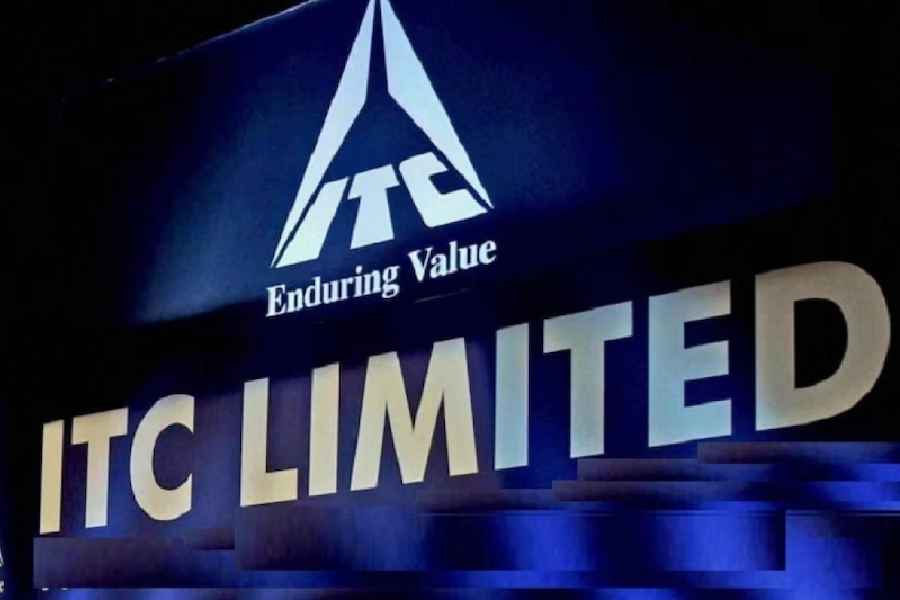ITC Ltd has become the third most valuable tobacco company in the world replacing British American Tobacco (BAT), following the sell-off in the shares of the London-based company on Wednesday.
ITC, which has diversified its business from tobacco to FMCG, hotels, papers and agri-products, had a market capitalisation of $68.6 billion at the end of the trading day on Thursday compared with BAT, which ended the trading day at the London Stock Exchange with a market cap of £51.58 billion or about $64.9 billion.
From a leased office of central Calcutta’s dingy Radha Bazar Lane, ITC began its journey as Imperial Tobacco Co of India Ltd as a subsidiary of the British parent in 1910.
Sixteen years down the line and 15 years after British India’s capital was moved to Delhi from Calcutta, the company purchased a plot on Chowringhee and shifted the office, where ITC’s headquarters Virginia House stands today.
As the company’s ownership progressively Indianised, the name of the company was changed to India Tobacco Company Limited in 1970 and then to I.T.C. Limited in 1974.
BAT Plc, which was formed as a joint venture of US-based American Tobacco Co Ltd and UK-based Imperial Tobacco Co Ltd in 1902, continues to hold a significant shareholding in India’s ITC Ltd. BAT holds 29.04 per cent stake in ITC through three entities, translating to a value of $19.9 billion.
In effect, BAT’s shareholding in ITC is equal to almost one-third of the market capitalisation of the maker of Lucky Strike and Dunhill brand of cigarettes. BAT’s holding in ITC is classified as foreign direct investment. However, India has disallowed FDI in tobacco companies, limiting BAT’s options in the country. BAT is listed as a public shareholder in ITC. It has two representatives on the board.
Diverse trend
The ITC stock has been on an upward trend, outperforming the broader market by a wide margin. It has gained by 34.7 per cent in one year and 125.5 per cent in 3 years, as investors continue to bet on the company’s diversification strategy, rising profitability in FMCG business, volume growth in cigarettes and a revival in the hospitality segment.
The tobacco business accounted for just 37 per cent of ITC’s gross revenue for six months ended September 30, 2023. However, it accounted for 78 per cent of profit before tax of the company.
In contrast, the BAT stock hit multi-year lows on Wednesday after the company took a $ 31.5 billion hit as it wrote down the value of some of the US cigarette brands. BAT shares fell as much as 10 per cent in London, lowest since September 2010. It rose marginally on Thursday.
The write-down marks the first time a major global tobacco firm has written off the value of its traditional cigarettes business in a major market like the United States and emphasised the need for the industry to focus on alternatives, Reuters had reported on Wednesday.
Many global tobacco majors are focusing on non-combustible products like vape in an era of ever stricter health regulations and growing consciousness among consumers. BAT has set a target to earn half of the revenue from non-combustible products by 2035.










